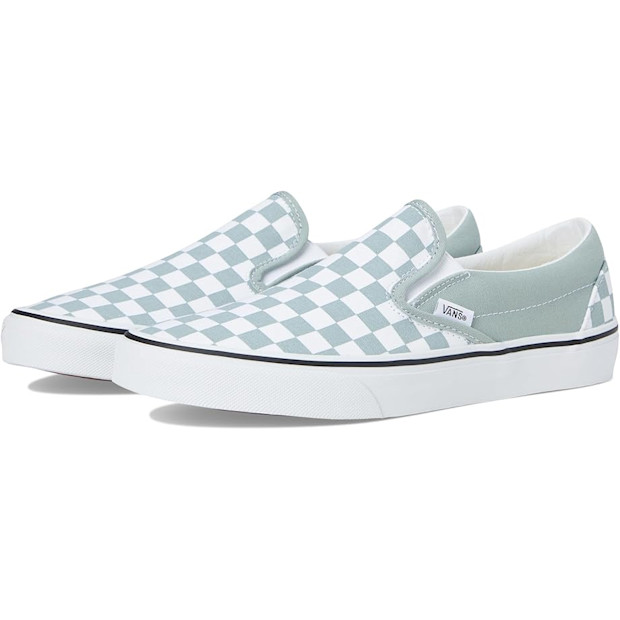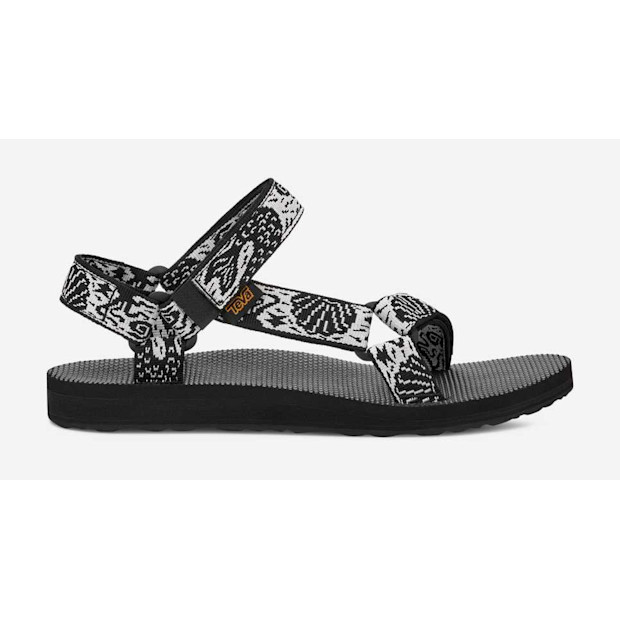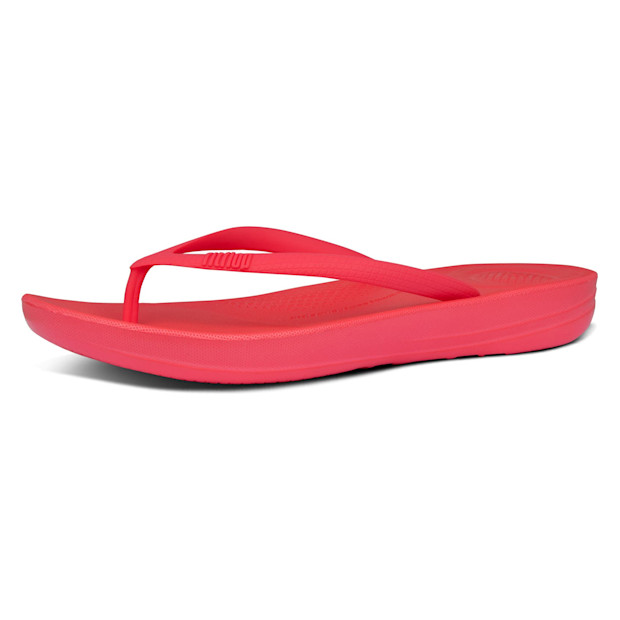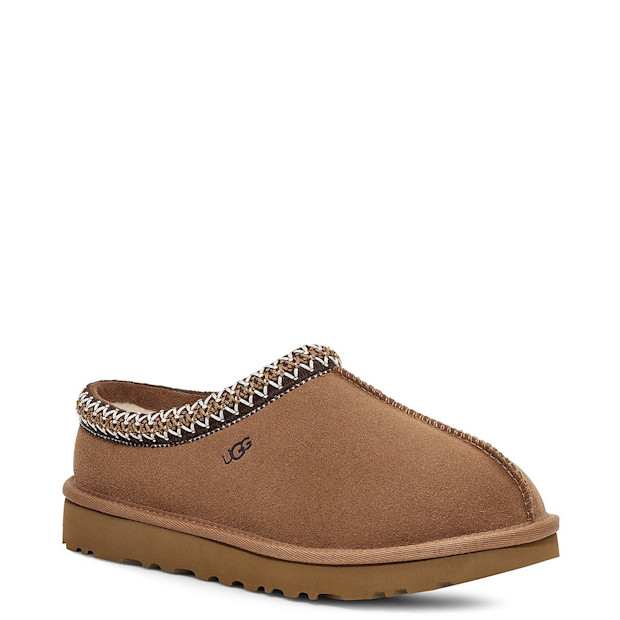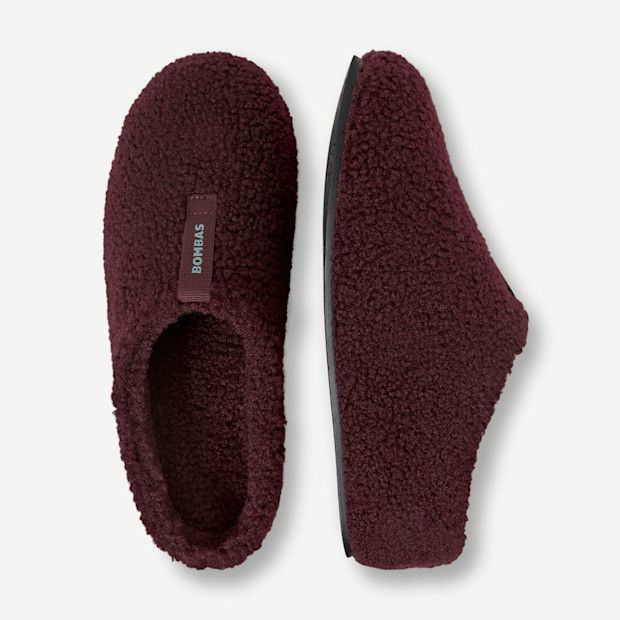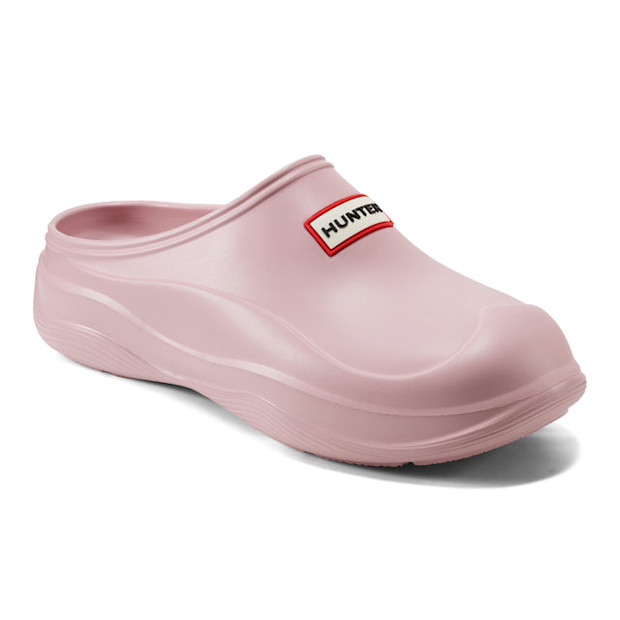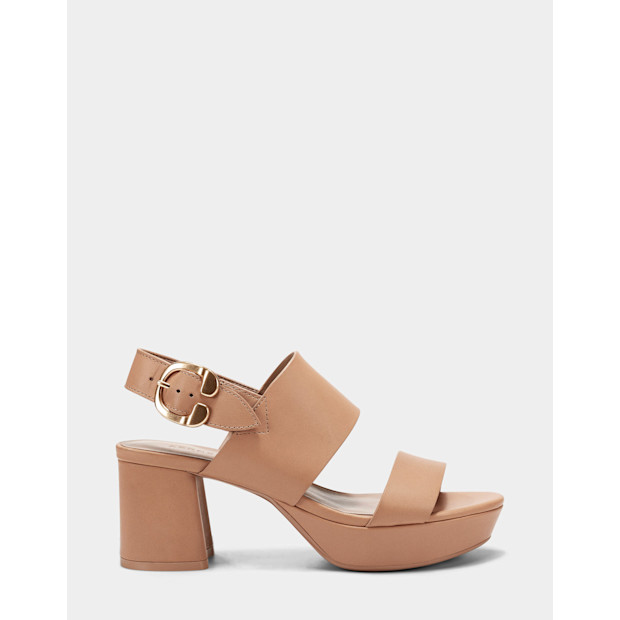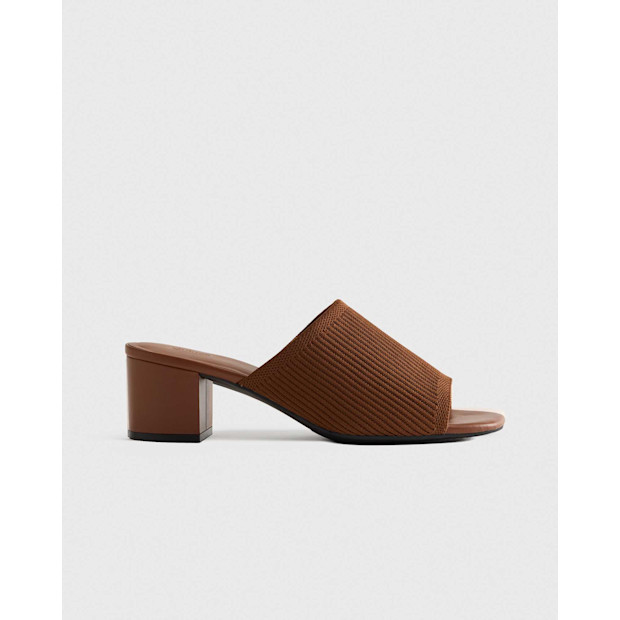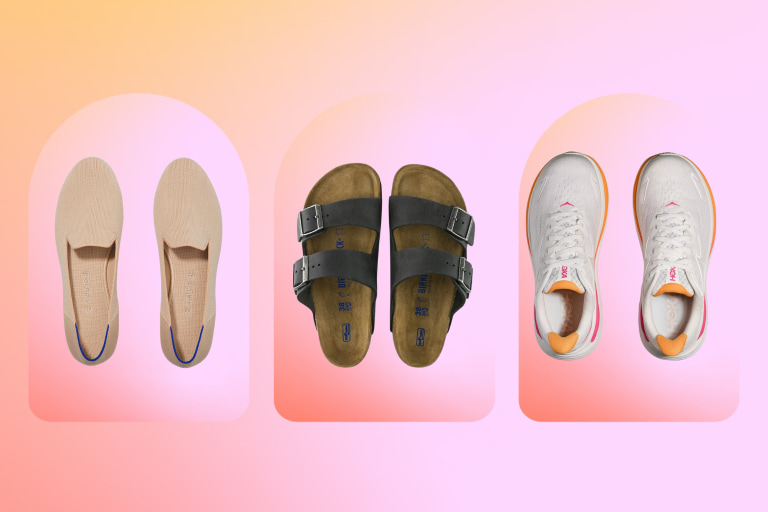
The Best Shoes for Pregnancy That’ll Support Your Every Step
From swelling to aching to actually growing (yes, growing!), pregnancy can do a number on your feet.

In This Article
During pregnancy, your body will jump into action to compensate for the baby you’re growing. Not only does your rib cage expand around the halfway point to make room for your baby (causing you to up your bra band size), but your feet actually grow to help maintain your balance and growing bump.
Along with your feet swelling due to the extra pressure of added weight and additional blood flow that’s moving oxygen to your baby and pregnancy hormones relaxing the ligaments in your feet (as well as in your pelvis as you near delivery time), you may also have fallen arches/flat feet. With all of the changes that can happen with just your feet during pregnancy, a quality pair of shoes is a must-have to help with proper support, stability and overall comfort.
We talked to Dr. Sarah Haller, a foot and ankle surgeon, to find out what you should look for when shopping for shoes for pregnancy, and with her expert guidance in mind, we rounded up the cute, comfy picks: everything from slides to a pair that you can throw on for work. These are the best shoes for pregnancy that’ll have you feeling like you’re walking on clouds (probably not exactly clouds, but your feet won’t feel like you’re walking on a bed of LEGOs).
Best Sneakers
Best Everyday Sneaker
They have “cloud” in the name, so you can bet these sustainable sneakers (the breathable upper contains recyclable materials) are soft, lightweight and ultra-breezy. As for comfort, insoles made of memory foam provide a supple landing for your feet, while the brand’s proprietary Cloudfoam technology cushions your midsole. And since the upper is made of a flexible material, there’s room for your feet to swell throughout the day. They’re also available in a host of great colors to match whatever kind of athleisure you’re living in these days. (i.e., they’ll match every pair of maternity leggings you own.)
Best Walking Shoes
HOKA Women's Clifton 10 Running Shoes
From $149.99The key to any physical activity is a good pair of sneakers and the HOKA Cliftons are perfect for walking, jogging, or, if you can, running. These newer versions (updated from the Clifton 9s) have a higher foam stack (42 millimeters at the heel and 34 millimeters on the forefoot), giving your heel more support and creating a more noticeable rocking effect when you walk. The 10s also have a wider base for better stability and a wider toe box, which is helpful for foot changes of pregnancy. All of these enhanced features make for a solid walking or exercise shoe that’s supportive, roomy and pressure-relieving.
Best Running Shoes
Staying active during pregnancy can be good for both your physical well-being and mental health. If you’re already a runner, you might want to think about a shoe that prioritizes comfort and support while you’re pregnant. Brooks is one of Dr. Haller’s favorite brands, and we think the Glycerin 22 road-running shoe, available in sizes 6 to 13, with medium to extra-wide widths, is amazing for the marathon of pregnancy. Their soft, dynamic cushioning is courtesy of a foam midsole that matches every runner’s unique stride, weight and speed. And Brooks’ lightweight support technology not only aids your arches, it’ll help your knees and hips (other common ailing spots in pregnancy), too. Not a runner? These shoes are great for walking, as well.
Best Slip-On Shoes
Kiziks weren’t designed specifically for pregnant women, but they should’ve been. These innovative sneakers solve one of the biggest pains of pregnancy: bending over to get your shoes on and off throughout the day. Kiziks are completely hands-free shoes. The brand’s patented technology lets the heel spring back when you slip on the shoe, so all you need to do is slide your foot in and you’re ready to go. No laces to fumble with, no bending, no sitting, and most of all, no groaning every time you need to head out the door.
The Athens have the brand’s proprietary Rabbit Foam on the outsole for rebound and a roomy toe box, leaving space for your ever-expanding pregnancy feet. The materials are sustainably sourced and the insole is machine washable. They’re perfect for walks, hanging out and everyday wear.
Best Sandals
Best Slip-On Sandals
Birkenstock’s Arizona slide-on sandals are a classic warm-weather shoe that will become a favorite for a summertime pregnancy. There are a variety of styles, and while they can all be worn during pregnancy, we like the leather option with the soft footbed the most. Along with being adjustable, the leather straps will naturally give to widening, swelling feet for an almost custom feel. The footbed is extra-cushioned so you won’t feel like you’re stepping down on a layer of cork. The defined sunken heel cup and raised toe bed help your Birkenstocks feel like they are uniquely molded to the shape of your foot. During pregnancy, your feet are likely to grow (as in, the literal bones of your feet expand), so the extra room in the toe box leaves plenty of space to grow into. Another plus: you can buy them in two different widths for an even more comfortable fit.
Best Strap-On Sandals
With a similar lightweight feel of Crocs, Tevas are a classic comfortable sandal option. The adjustable three-point straps allows you to figure out your right fit, even as your foot changes and swells throughout pregnancy. The insole is cushioned and soft while the outsole has a durable traction texture for extra stability.
Best Flip Flops
“There are some days where you just can’t get your feet that are swollen into a pair of shoes,” Dr. Haller says, and that is where a quality pair of flip flops comes in. When it comes to choosing a pair, she says to look for specific features, including a supportive arch and ample cushioning. The FitFlop iQushion Ergonomic Flip Flop has a featherlight, pressure-diffusing midsole and high-rebound air-foam cushioning that doesn’t deflate. In other words, they keep their shape and bounce back every time you take a step. Add to that solid heel and ball-of-foot impact pillows—basically shoe shock absorbers—and an anatomically shaped footbed that matches the natural contours of your foot, and you have a flip flop that just won’t quit. With 13 punchy colors to choose from, you might just need to “eeny meeny miny moe” to figure out a favorite.
More Sandals We Love
Best Work Shoes
Best Loafer
When you have to show up to the office but your regular flats feel like you’re walking around barefoot, we think it’s fair to invest in a comfy pair of shoes you can wear to work. Rothy’s shoes are uniquely made of recycled plastic, which we know doesn’t sound comfortable but they are flexible, breathable and machine washable. The insole is soft and cushioned while the outsole is firm and stable. If the loafer style isn’t your thing, Rothy’s also makes a variety of flat styles like ballet flats and Mary Janes.
Best Mary Janes
While Mary Janes are having a moment right now, they're a classic silhouette that will always be in style. Aside from being trendy, Birdies Mary Janes have a flexible insole and satin, quilted footbed that moves with your foot. The elastic strap closure allows you to slip these on and off without fiddling with a buckle or needing to bend over. The patterned traction and tiny heel keeps you from slipping while providing extra arch support, so you don't feel like your foot is smacking onto the hard ground.
More Work Shoes We Love
Best Lounge Shoes
Best Warm Weather Lounge Shoes
On the days that you just want to slide into a pair of shoes to head to school drop off, do a grocery store run or just putz around in, Crocs get the job done. Super lightweight, while also being unbelievably durable, Crocs have a wide toe box and the necessary flexibility to accommodate your growing feet. Thanks to the ventilation holes, Crocs keep your feet from feeling sweaty and are water-friendly. They’re available in dozens of colors, patterns, and styles (I love the platform ones too!). And thanks to Gen Z, they’re definitely in right now.
Best Cold Weather Lounge Shoes
For cold-weather pregnancies, these slip-on UGGs will be your go-to. The sheepskin-lined inside is made of bio-based EVA (ethylene-vinyl acetate), a shock-absorbing material that makes every step feel supported and cushioned. Despite having slipper in the name, these are designed to be worn indoors and outdoors. I have a pair and they are among my most comfortable pair of shoes in my closet. If you're between sizes, I'd recommend sizing up for the most comfy fit.
Best Heels
Best Backless Heels
Heels and pregnancy aren’t mutually exclusive. That being said, you should still aim to take it easy when you’re wearing them. Dr. Haller advises her pregnant patients to “wear the shoe you love for a half hour to one hour, and then spend time sitting down.” When it comes to heels, Dr. Haller prefers “a platform sandal or a simple 1-to-2 inch block heel.” We love these stunning INEZ heels for that reason. The best-selling Lulu heels are not only at that perfect 1-to-2 inch sweet spot, they’re made with a custom-designed insole with arch support and a leather sole with rubber inset for traction and stability.
Best Strap-On Heels
If you prefer a heel with a back strap for extra support, this platform pair are a good option. Made of soft, pliable leather, you can grab these in two different widths. The diamond pattern on the rubber sole give you extra traction and the ortholite foam insole adds an extra layer of comfort. Dr. Haller also advises, “once you get home and take off your heels, elevate your legs (higher or at the level of your heart, depending on your flexibility) to allow for lymph drainage.” Just lie down, prop your feet up with a few pillows and let gravity do its job to move the excess fluids out of your feet and ankles and back into your blood circulation.
What to Look for in Pregnancy Shoes
Almost every foot-related concern in pregnancy can be improved with a new pair of well-fitting, comfortable shoes (even if that means sizing up a half to one size for the duration of your pregnancy). When choosing a maternity shoe, though, keep the following considerations in mind:
Comfort
Pregnancy can be an uncomfortable experience, so when it comes to what you’re wearing on your feet, you want to choose supportive shoes.
“Widening and flattening of the arch is very common during the gestational period,” says Dr. Haller. If pregnancy hormones have caused your arches to flatten—which can increase the likelihood of ankle sprains or instability issues—you can lessen some of the pain or soreness with contoured, cushioned insoles.
You’ll also want to avoid squishing your feet into too-tight shoes. If you’ve wondered if your feet are getting longer, you might not be wrong! As the weight from your belly pushes down into your extremities, your feet may become flatter and grow in size a bit. Combined with any swelling you might experience in your ankles, you’ll find that shoes that are “roomy and supportive, like cushioned sneakers,” says Dr. Haller, are most appropriate. Again, don’t be afraid to go a size larger!
Breathability
Hormones have a way of making you all kinds of sweaty (no matter what time of year it is), so when you’re considering shoes for everyday wear, consider options made from breathable fabrics such as mesh, canvas, leather and suede to help your sweaty feet.
Stability
When you’re pregnant, your body’s center of gravity (or balance point) changes, so you may become less coordinated as your bump gets bigger. It doesn’t mean that you have to surrender all your heels, but looking to wedges or espadrilles instead or finding a shoe with a stable block heel and wide supportive straps can all be good ideas.
Alternatively, if you’re already more inclined to choose flip flops over high heels, look for picks that feature cushioned footbeds and built-in arch contours that cradle your feet where they need it most.
“For balance and stability, I always suggest an over-the-counter insert to my pregnant moms since their arch will continue to change as they go through pregnancy. A Powerstep Orthotic is exceptionally accommodative and supportive.”
In addition, compression socks are also your friend. Edema—or swelling—is a common concern during pregnancy, as there’s greater blood volume in the body. Compression socks can help keep fluid from accumulating in the calves and feet. They’re also ideal for improving circulation and reducing the risk of blood clots. “I like Doc Millers, but anything with a compression intensity of 15 to 20 mmHg is appropriate,” suggests Dr. Haller.
Note on Pregnancy Swelling
Some swelling is totally normal during and after your pregnancy, but if you’re noticing something outside of what’s normal for you—particularly excessive swelling in your legs, hands or especially the face—you should talk to your healthcare provider right away. It could be a sign of preeclampsia.
How Does Pregnancy Affect Your Feet
Pregnancy affects everyone differently, but foot changes are common. Here are some you might experience:
Foot growth. In order to make room for a growing baby and prepare your pelvic area for delivery, your body produces a hormone called relaxin that softens the cervix and makes bones and ligaments more pliable. For some moms-to-be, relaxin can force the feet to lengthen and expand. While these changes sometimes go away after pregnancy, some people find their shoe size has permanently changed.
A waddling stride. Your gait—or the way you walk—may change, as well, as a result of your spine and pelvis curving inward to accommodate the extra weight and growth in your abdomen. You may start to lean backward as a way to compensate. In the last few weeks before baby comes, you’ll also experience “lightening,” when your baby starts to drop in your pelvis. As your pelvis expands, your stance gets wider, and voila: The much-talked-about “waddle” is born.
Ingrown toenails. Swollen feet (which we’ll get into later!) can also do a number on your toenails. If you’re constantly squeezing your feet into ill- or tightly-fitting shoes, your nails can start digging into your skin, causing inflammation and even infection. Sizing up, wearing open-toe shoes that are less confining and perhaps even a warm foot soak at the end of the day can help prevent and treat ingrown toenails.






